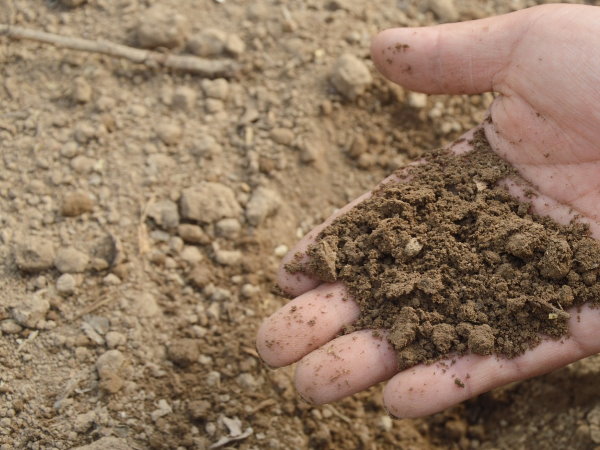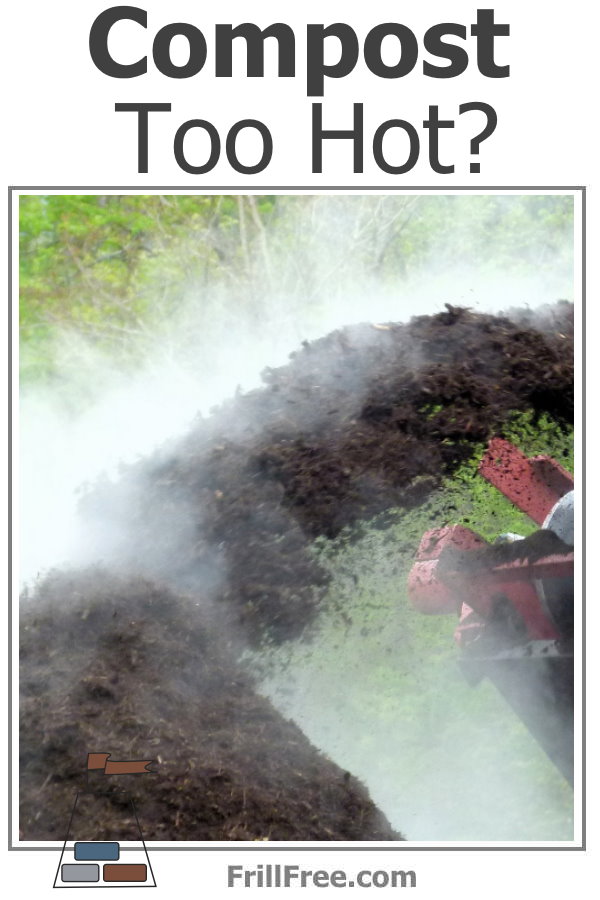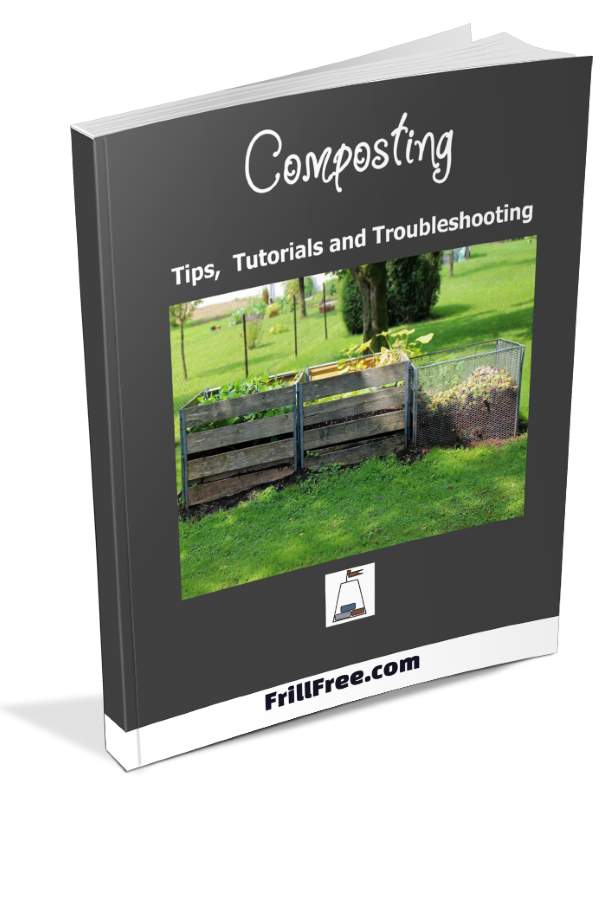- Homesteading
- Composting
- Compost is Too Hot
Is Your Compost Too Hot?
What To Do About It
Is your compost too hot, pumping out billows of steam whenever you poke it, or even without touching it? And if you do put your hand in, you can feel the heat.
This is a good problem to have, as it indicates that the micro herd is active and happy. You don't need to do anything. That heat is what the tiny bacteria and other creatures produce as they scramble around and eat, play, mate and die. You want some heat.
How Much Heat Is Too Much?
If the compost pile is dangerously hot, to the point that it's way too hot to put your hand into it, or it's smouldering, or about to burst into flames, this is too hot.
Nothing beneficial can happen if the compost is actually burning. How can it burn? you ask. It can burn if the damp sticks, leaves and grass clippings contained it it dry out from the heat, then spontaneously combust.
One day when I was working in the wholesale nursery as the head propagator, I noticed the pile of grass clippings actually smoking. I asked the boss if he did that intentionally, and you should have seen him move! He spread the pile out and watered the burning part until it was out.
So what did he do wrong?
The first thing was to provide too much mass that was composed of damp grass and nothing else. Grass in all its iterations is amazingly flammable when damp. Think about all the hay barns that burn every year due to rushing the harvesting process or getting rained on and hurrying the storage in the barn.
Then the heat builds up to dangerous levels, deep inside the stack. I've heard of it smouldering for months, until the farmer breaks into the stack for animal feed, and it explodes into flames. Terrifying!
I doubt if your compost would do the same, but I have had a compost made of leaves, horse manure and kitchen scraps, layered with old flour and chicken feed. The temperature was lower than -25 out in the open air, and steam came out of the top for weeks.
That was the nicest compost I ever made!
I've also seen pictures of a half burned deck caused by using high ratio of compost in tomato soil, so be warned that even the smaller size of a pot or container can be a problem too.
If you don't want it to be this hot, or you fear that it will combust, you'll have to do some work.
Deconstruct the pile into a new bin, layering each four to six inch layer with mineral soil, sand or something else inert - don't use peat moss or straw, which will make it worse. Water well, then monitor the process closely.
 Mineral Soil has a high component of sand
Mineral Soil has a high component of sandThis fact of the compost getting too hot is the reason (aside from the smell) that you want to site your bins away from the house, barn or any sheds, or any combustible materials.
Keep the area around your compost bin cleared of wood chips, plastic, lumber or anything else, just in case. In these days of global warming, the last thing you need is to be responsible for a wildfire.
If it's already in the steaming stage, nothing needs to be done except to monitor the moisture levels. This will dry out quickly, so dig into it once a day and water if needed.
A couple of watering cans of tempered rain water is ideal, but you can also use washing up water (use a biodegradeable dish detergent) or save it when showering. Heat pumps also provide a good source of water via the defrost cycle - capture it with a bucket under the outlet under the outside unit.
With this much heat, the pile will age quickly, meaning you will end up with 50% of the pile you started with.Turning it once it cools down will get it heating up again, especially with the addition of some grass clippings layered into it.
















